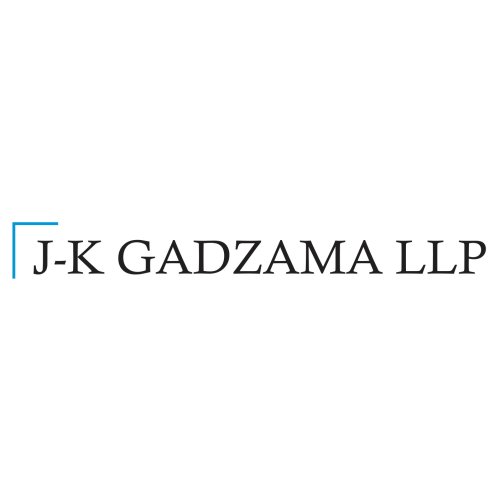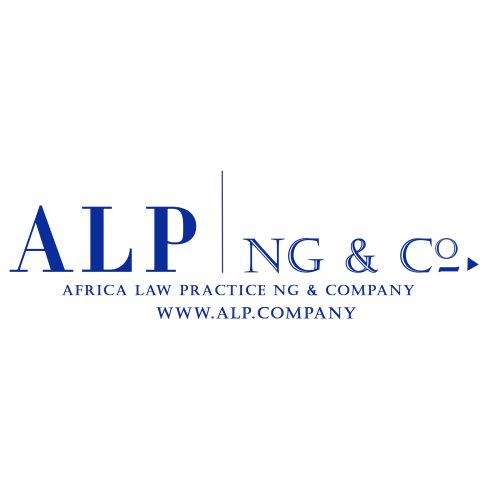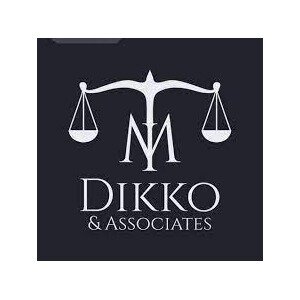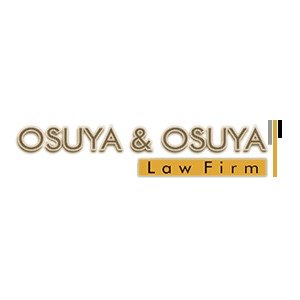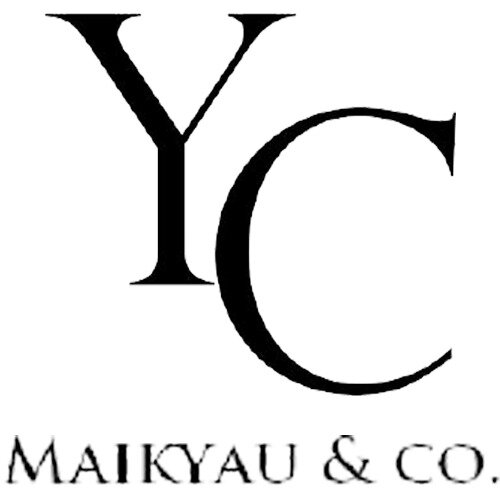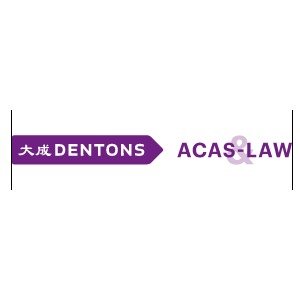Best Private Equity Lawyers in Abuja
Share your needs with us, get contacted by law firms.
Free. Takes 2 min.
List of the best lawyers in Abuja, Nigeria
About Private Equity Law in Abuja, Nigeria
Private Equity refers to investment funds, typically organized as limited partnerships, that buy and restructure companies that are not publicly traded. In Abuja, the capital of Nigeria, Private Equity transactions have become increasingly prominent as both local and international investors seek opportunities within the country’s growing economy. The legal landscape for Private Equity in Abuja is influenced by various Nigerian laws and regulations, requiring a thorough understanding of commercial, regulatory, and compliance considerations when structuring or participating in Private Equity deals. Legal professionals play a crucial role in ensuring that investments are secure and compliant with all relevant local requirements.
Why You May Need a Lawyer
Engaging in Private Equity transactions involves complex legal issues and significant financial commitments. Here are common situations where you may require legal assistance in Private Equity in Abuja:
- Structuring or negotiating a Private Equity investment or fund.
- Carrying out due diligence on target companies.
- Drafting and reviewing transaction documents such as Share Purchase Agreements, Shareholders’ Agreements, and Management Agreements.
- Ensuring compliance with local and international regulations, including anti-money laundering laws.
- Resolving disputes between investors, partners, or with regulatory bodies.
- Facilitating exits or divestments from invested companies.
- Managing tax implications related to Private Equity investments.
A lawyer experienced in Private Equity law ensures your interests are protected, helps you navigate compliance requirements, and can mitigate potential risks associated with your investments.
Local Laws Overview
Private Equity investments in Abuja, and Nigeria as a whole, are governed by a mix of statutes and regulations. Key aspects of local law relevant to Private Equity include:
- Companies and Allied Matters Act (CAMA): Governs corporate formation, management, and operations of companies in Nigeria.
- Investment and Securities Act (ISA): Regulates securities, fund management, and investments, overseen by the Securities and Exchange Commission (SEC).
- Securities and Exchange Commission (SEC) Guidelines: Specific rules on Private Equity funds, including registration and operational requirements.
- Central Bank of Nigeria (CBN) Regulations: Applies if investments touch on financial institutions or banking sector activities.
- Tax Laws: Income Tax Act, Capital Gains Tax Act, and other relevant tax regulations impact the structuring of Private Equity deals.
- Anti-Money Laundering Laws: Enforced by bodies such as the Economic and Financial Crimes Commission (EFCC) to prevent illicit financial flows.
- Foreign Exchange Controls: Applies to cross-border deals, as regulated by the CBN.
Understanding these laws is critical for compliance and the successful execution of Private Equity transactions in Abuja.
Frequently Asked Questions
What is Private Equity?
Private Equity is a form of investment where funds are pooled to invest directly into private companies or buy out public companies to delist them, often to improve their value and eventually sell them at a profit.
What legal structure do Private Equity funds typically use in Nigeria?
Most Private Equity funds are structured as limited partnerships or companies under the Companies and Allied Matters Act, with investors as limited partners and fund managers as general partners or directors.
Does a Private Equity fund require registration with any authority in Abuja?
Yes, Private Equity funds and their managers generally must register with the Securities and Exchange Commission and comply with relevant SEC regulations.
Are foreign investors allowed to participate in Private Equity deals in Abuja?
Foreign investors are allowed but must comply with Nigerian foreign investment laws, including registration with the Nigerian Investment Promotion Commission and observing any sector-specific restrictions.
What due diligence is required before investing?
Thorough legal and financial due diligence is critical, covering corporate records, contracts, regulatory compliance, tax history, ownership structure, and potential liabilities of the target company.
How are disputes resolved in Private Equity deals?
Disputes are typically addressed through negotiation and alternative dispute resolution methods, such as arbitration or mediation, though litigation in Nigerian courts is also possible.
Are there any restrictions on the sectors in which Private Equity can invest?
Certain sectors in Nigeria, such as oil and gas, telecommunications, and banking, may have restrictions or require additional licenses and approvals from relevant regulators.
How are tax considerations managed in Private Equity transactions?
Structuring for tax efficiency is important. Investors work with lawyers and tax advisors to understand and manage liability for corporate income tax, capital gains tax, and withholding tax.
Can Private Equity funds exit investments freely?
While exits are usually planned through sales or listings, some regulatory and contractual restrictions may apply depending on the terms of the agreement and the sector involved.
What legal documentation is essential in a Private Equity transaction?
Key documents include the Share Purchase Agreement, Shareholders’ Agreement, Subscription Agreements, Due Diligence Reports, and regulatory filings with the SEC and other bodies.
Additional Resources
If you are seeking more information or need assistance with Private Equity in Abuja, the following resources and organizations may be helpful:
- Securities and Exchange Commission (SEC): Regulates capital markets and provides guidelines on Private Equity funds.
- Nigerian Investment Promotion Commission (NIPC): Facilitates foreign investment and provides guidance on investment procedures.
- Corporate Affairs Commission (CAC): Oversees company registration and compliance.
- Central Bank of Nigeria (CBN): Regulates banking and foreign exchange operations relevant to cross-border investments.
- Nigerian Bar Association Section on Business Law (NBA-SBL): Provides access to legal professionals in corporate and commercial law.
Next Steps
If you are considering a Private Equity investment or involvement in Abuja, Nigeria, it is advisable to seek legal counsel early in the process. Here is how you can proceed:
- Identify and engage a reputable law firm or lawyer specializing in Private Equity and commercial law in Abuja.
- Prepare all necessary documents and information about your investment objectives and background.
- Work closely with your lawyer to understand legal requirements, conduct due diligence, and structure the deal for compliance and efficiency.
- Remain informed of regulatory changes by consulting with relevant authorities and attending workshops or seminars dealing with Private Equity in Nigeria.
Taking these steps can help you protect your investment interests and ensure a smooth Private Equity transaction experience in Abuja.
Lawzana helps you find the best lawyers and law firms in Abuja through a curated and pre-screened list of qualified legal professionals. Our platform offers rankings and detailed profiles of attorneys and law firms, allowing you to compare based on practice areas, including Private Equity, experience, and client feedback.
Each profile includes a description of the firm's areas of practice, client reviews, team members and partners, year of establishment, spoken languages, office locations, contact information, social media presence, and any published articles or resources. Most firms on our platform speak English and are experienced in both local and international legal matters.
Get a quote from top-rated law firms in Abuja, Nigeria — quickly, securely, and without unnecessary hassle.
Disclaimer:
The information provided on this page is for general informational purposes only and does not constitute legal advice. While we strive to ensure the accuracy and relevance of the content, legal information may change over time, and interpretations of the law can vary. You should always consult with a qualified legal professional for advice specific to your situation.
We disclaim all liability for actions taken or not taken based on the content of this page. If you believe any information is incorrect or outdated, please contact us, and we will review and update it where appropriate.





